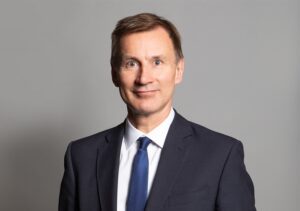Spring Statement Analysis
Does Jeremy Hunt actually have anything to announce in his Budget Statement next week?

There is a question mark for me around why Jeremy Hunt feels we need a Budget statement in March. Hunt’s first Budget last October set a £100 billion swing from the disastrous Mini Budget and nailed down the Government’s attempt to stabilise the economy and rebuild market confidence through a package of tax increases, adding to the country’s tax burden, which is at its highest in 50 years.
As Chancellor under Theresa May’s Government, Philip Hammond sought to end the bi-annual Budget event, but we have fallen back into that cycle now; and in my view, this Budget statement serves no particular purpose.
There is pressure from the Conservative backbenches to announce tax cuts, but that is highly unlikely. It’s also improbable that Hunt and Sunak will announce further tax increasing measures, especially as inflation is showing signs of easing and tax receipts are £50 billion up in this fiscal year on the same period last year.
So, what has Jeremy Hunt actually got to tell us?
Energy: The cloud hanging over households and businesses remains the cost of energy. Firstly, Hunt has held firm around the potential 12p increase to fuel duty – it would seem likely that the Chancellor will freeze fuel duty at its current level for another year in a perceived tax giveaway. The bigger challenge is how the Government handle the 40% cliff edge increase to energy prices for households – some campaigners are calling for the Government to retain the current £2,500 average price cap, and that could realistically happen with wholesale energy prices falling and increased tax revenues. But it’s a cost the Government wants to desperately avoid.
Business: Businesses will be more worried. The new energy package from April is limited in design and reach, and with some businesses facing a 6% Corporation Tax increase to 25%, margins and profits will take a hit, reducing the ability for investment. One option could be to extend the much celebrated ‘Super-Deduction’ to encourage business investment.
Pensions: One possible giveaway could be with pensions, to increase the annual and/or lifetime allowances to encourage the over 50s back into the workforce. Jeremy Hunt has looked to this group, who retired to their sun loungers following the pandemic, to kick start the country’s growth. It’s therefore worth keeping a close eye on any incentives for the older worker.
Any expectations of a reverse on the “big freeze” on personal tax allowances, cancelling the Corporation Tax increase or abolishing 45% Income Tax should be firmly buried. Expect a boring, quiet budget with some PR around reduced inflation, higher tax receipts and a stable economy. If we are lucky, we may get a preview of the Government’s future plans as attention will turn to a future election.
Would you like to know more?
If you would like to discuss any of the above, please get in touch with your usual Blick Rothenberg contact or Nimesh Shah using the form on this page.
Contact Nimesh

You may also be interested in

Is the End of the Triple Lock Pension Inevitable?

The UK is a stable, open and innovation-driven market for Japanese firms to invest in













